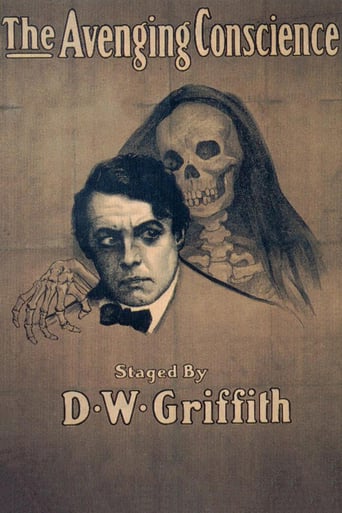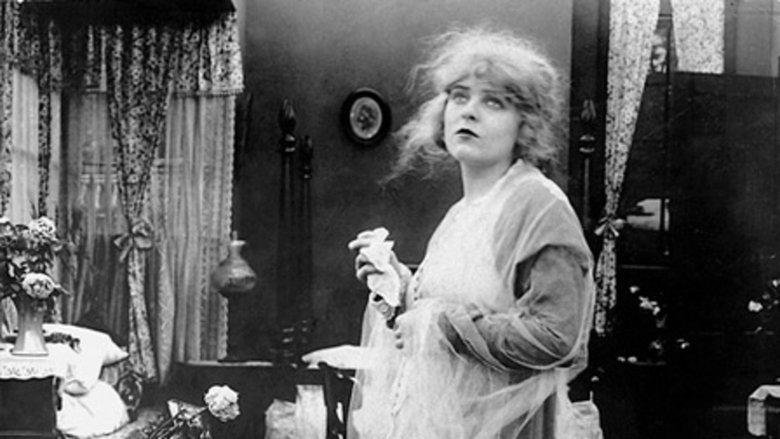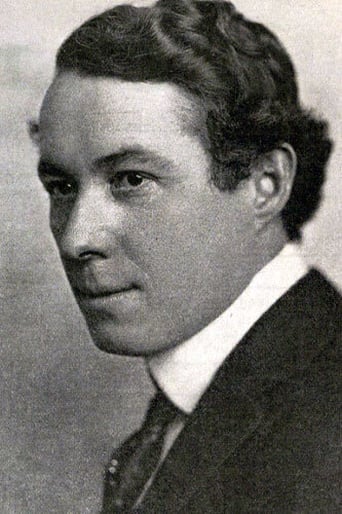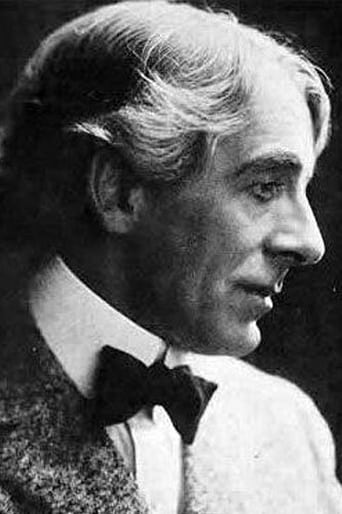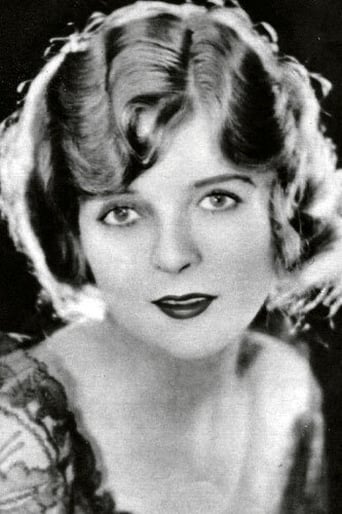The Avenging Conscience (1914)
Thwarted by his despotic uncle from continuing his love affair, a young man's thoughts turn dark as he dwells on ways to deal with his uncle. Becoming convinced that murder is merely a natural part of life, he kills his uncle and hides the body. However, the man's conscience awakens; paranoia sets in and nightmarish visions begin to haunt him.
Watch Trailer
Free Trial Channels
Cast


Reviews
Good , But It Is Overrated By Some
A Major Disappointment
It is a whirlwind of delight --- attractive actors, stunning couture, spectacular sets and outrageous parties.
It's the kind of movie you'll want to see a second time with someone who hasn't seen it yet, to remember what it was like to watch it for the first time.
D.W. Griffith takes Edgar Allen Poe classics "Annabel Lee" and "The Tell-Tale Heart"; and, with some good and bad additions, creates a near-classic. Mr. Griffith creates a melancholy mood, right from the start, as the young protagonist gets an unfortunate start in life, after his mother dies; even as a baby, he looks forlorn. Quickly, the child grows up to be Henry B. Walthall; he is raised by his uncle, Spottiswoode Aitken. All goes well until Walthall begins to see "common woman" Blanche Sweet. Uncle Aitken does not approve; and, he orders Mr. Walthall to stop seeing Ms. Sweet. Desperate, Walthall considers murdering Aitken.The performances are terrific. Walthall is very impressive, in one of his best pre-"Birth" roles. Sweet and Aitken are outstanding. All rise significantly above the uneven material. The Griffith production company's supporting cast is, as usual, extraordinary. Robert Harron and Mae Marsh provide perfect contrast as a grocery boy and maid; and, you should note, their romance provides Aitken with a change-of-heart missed by Walthall's character. Eventually, the film loses direction; as Griffith tries to merge Poe with well, see for yourself.Appropriately subtitled "Thou Shalt Not Kill".******* The Avenging Conscience (8/2/14) D.W. Griffith ~ Henry B. Walthall, Blanche Sweet, Spottiswoode Aitken, George Siegmann
Poe's psychological story "The Tell-Tale Heart" uneasily receives Griffith's trademark Victorian approach turning the madman anti-hero of the original into a frustrated love-struck milquetoast! The broad gestures typical of Silent-film acting render the proceedings unintentionally comical now, especially where the ghostly apparition of the murdered relative is concerned who, by the way, is fitted with an eye-patch throughout and, yet, no reference whatsoever is made to his all-important "vulture eye"!! Still, the various hallucinations at the climax crude though they may be are reasonably effective. Incidentally, the stilted presentation and moralistic overtones evident here also marked the other Griffith horror effort that I've watched THE SORROWS OF Satan (1926); all I can say is that, in spite of the solid reputation THE AVENGING CONSCIENCE enjoys within the director's canon, personally I was underwhelmed by the film on a preliminary viewing.Other cinematic adaptations of the classic tale I've checked out all of them relatively recently are the interesting 1928 short (viewed on the very same day as the Griffith title), the so-so 1936 British feature-length version and a pretty good animated rendition of it from 1953.
The opening scene sets the mood for this eerie and curious Griffith film; a family is in mourning, where the uncle (played by Spottiswoode Aitken) turns towards his infant nephew. Once the boy is a man (played by Henry Walthall), his uncle is still guiding him through life. The conflict begins when the nephew has a love interest (played by Blanche Sweet), which the uncle feels is incompatible with the plan he has set for his nephew.Loosely based on Edgar Allan Poe's "The Tell-Tale Heart", with appropriate takings from Poe's poem "Annabel Lee" to help move the plot, this is the most extrinsic of Griffith's films--neither an epic, nor a quaint romance, for which he is renowned. In most ways, it's more similar to later psychological or expressionist films from Scandinavia and Germany. The slow pacing and use of irises and other methods add to the pang of this psychoanalytic horror. The restrained performances are even more vital, especially Walthall's forceful performance, again displaying his versatility--rarely has a nervous, psychotic breakdown been done better.It's impressive that Griffith succeeded as much as he did in such a foreign genre, especially in his imperfect period before "The Birth of a Nation"; therefore, the flaws are surprisingly few and excusable. Again, Griffith inserts a supplementary romance, or "The Contrast", as he called it; in this movie, it is particularly misplaced, unnecessary and feckless. Perhaps its removal would have allowed for needed development of the uncle. I wonder why he was so frantic and selfish in his vicariousness. Finally, the ending is of what would be one of the more contemptible of such conventions. Griffith slightly recovers, however, with the most queer scene in the film--the Pan fantasy, in a way, reasserts Walthall's character's insanity.
Henry Walthall plays a man whose love for a young girl, played by Blache Sweet, drives him to murder his doting and overprotective uncle. His guilt drives him insane, and in the climactic scene where the detective pushes him to confession, Walthall is so overcome with visions of demons driving him to hell he is on the verge of an apoplectic fit. The most notable things in The Avenging Conscience, in addition to the obvious horrific tableaux and weird scenes of Pan with nymphs at the end, is the way Griffith draws characters in different places together through intercutting and use of props and gestures, i.e. books, pictures, prayer and other things. Perhaps he already had Intolerance in the back of his head while making this oddball adaptation of several Poe works. Also the film appears to have had some influence on other filmmakers; Chaplin's Sunnyside for example, owes something to the bit with Pan at the conclusion. My copy, projected a bit fast, runs only 56 minutes, and clearly there are missing scenes which makes for a choppy continuity. There is a still from The Avenging Conscience in Iris Barry's 1940 bio of Griffith that is from a scene which is no longer in the film. A different still once thought to be from The Avenging Conscience of Griffith directing Walthall holding a pistol to his head was actually taken on the set of Griffith's lost 1914 effort The Escape. The set dressing in The Escape is basically the same as that for the Uncle's home in The Avenging Conscience with a few things switched around, which suggests the two films were shot very closely together, or even simultaneously.

